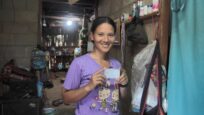What UNHCR is doing to help refugee children
Over half of the world’s refugee population is made up of children.
In situations of crisis and displacement, children, adolescents and youth are at risk of serious trauma conditions, various forms of abuse, separation from their carers, neglect, violence, exploitation, trafficking or military recruitment. UNHCR is working on the ground to ensure that refugee children are protected through our programmers e.g. shelter, health and education.
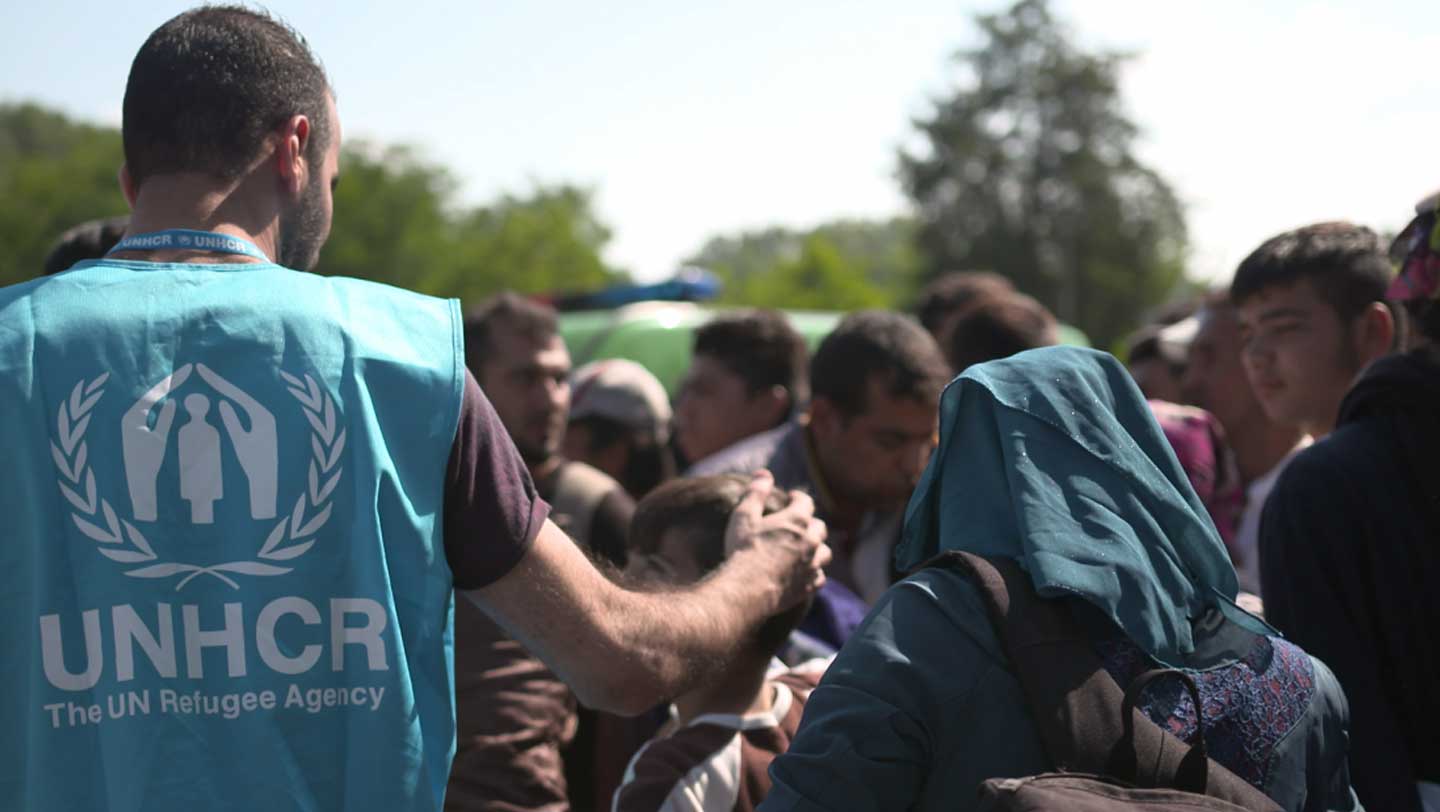
Protection: We work with families, communities, national authorities, other international and local organisations, and with children, adolescents and youth themselves. ©UNHCR
Protection
UNHCR is committed to ensuring that children, adolescents and youth are protected from harm and that their rights are upheld through the provision of psychosocial support and targeted programmes to meet their specific protection and developmental needs. We work with families, communities, national authorities, other international and local organisations, and with children, adolescents and youth themselves.
With your help, we strive to ensure that:
- All girls and boys are safe where they live, learn and play
- Those who are unaccompanied or separated are cared for and have access to family tracing and reunification services
- Newborns are registered at birth and children with disabilities are supported
- Children associated with armed groups and armed forces receive the necessary support to be reintegrated into their communities
- Children, adolescents and youth can rebuild their lives through psychosocial support and recreational activities and education
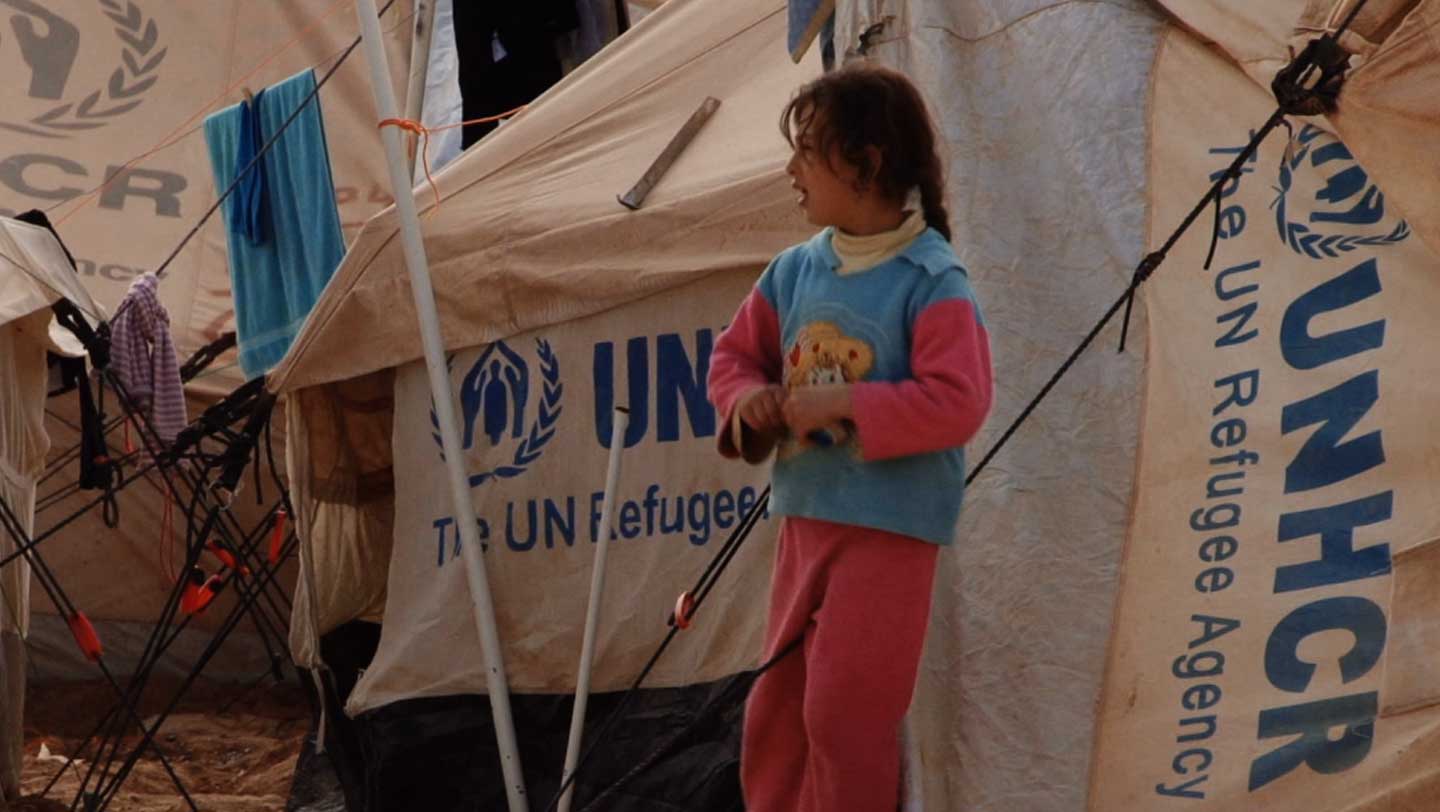
Shelter: On cold nights or hot afternoons, our help can be the difference between life and death. ©UNHCR
Shelter
On cold nights or hot afternoons, our help can be the difference between life and death.
Shelter is a vital survival mechanism in times of crisis or displacement. It is also key to restoring personal security, self-sufficiency and dignity. At UNHCR, a core part of our protection mission is to guarantee access to adequate shelter in humanitarian emergencies. We provide tents, distribute plastic sheeting and develop emergency strategies, tools and guidelines, rushing aid and restoring a sense of home to those who need it most.
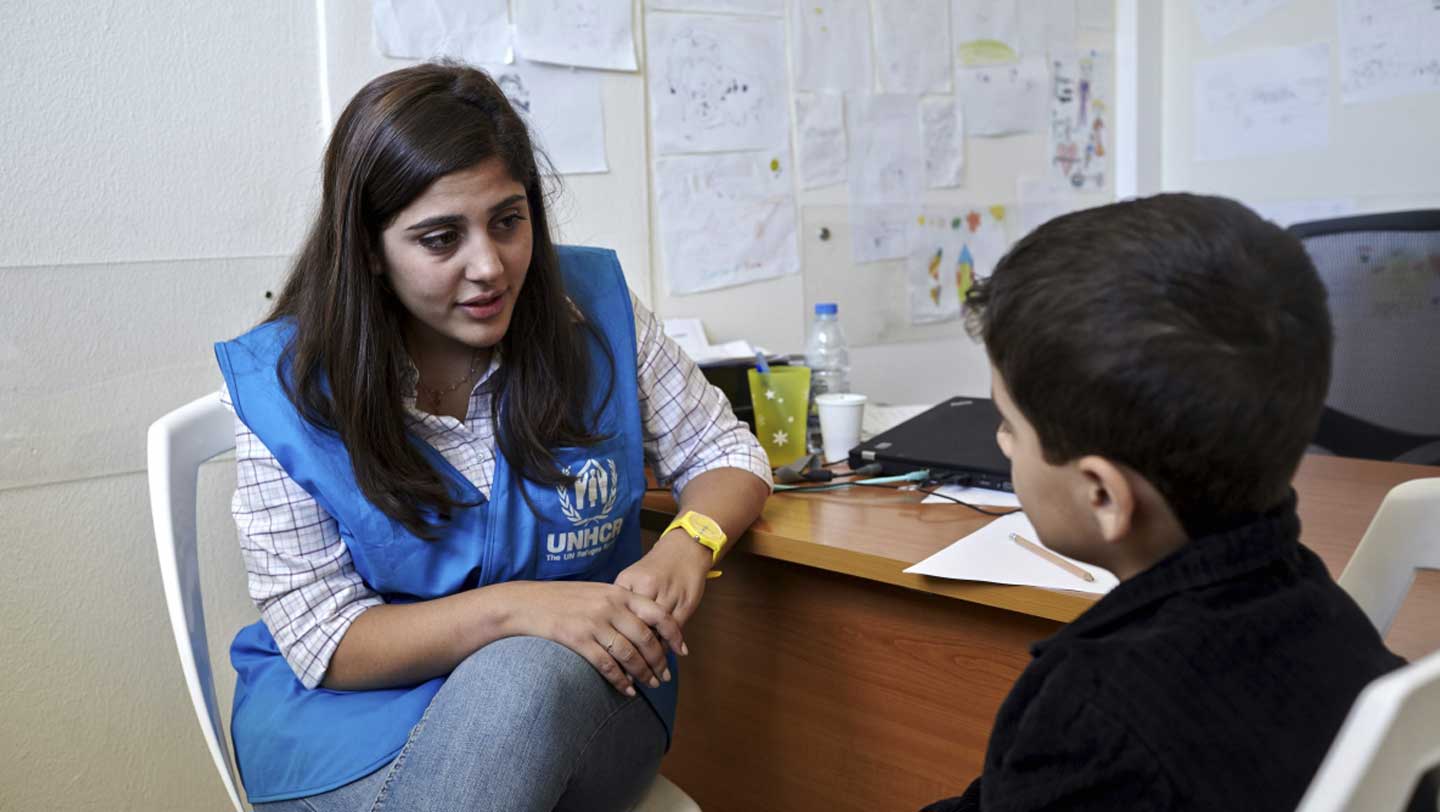
Health: UNHCR strives to ensure that all refugees are able to access life-saving and essential healthcare. ©UNHCR
Health
UNHCR strives to ensure that all refugees are able to access life-saving and essential healthcare. This can include HIV prevention, protection and treatment, reproductive health services, food security and nutrition, and water, sanitation and hygiene services. Thanks to our donors and partners, the assistance we provide is transforming lives in refugee camps, settlements, rural and urban populations around the world.
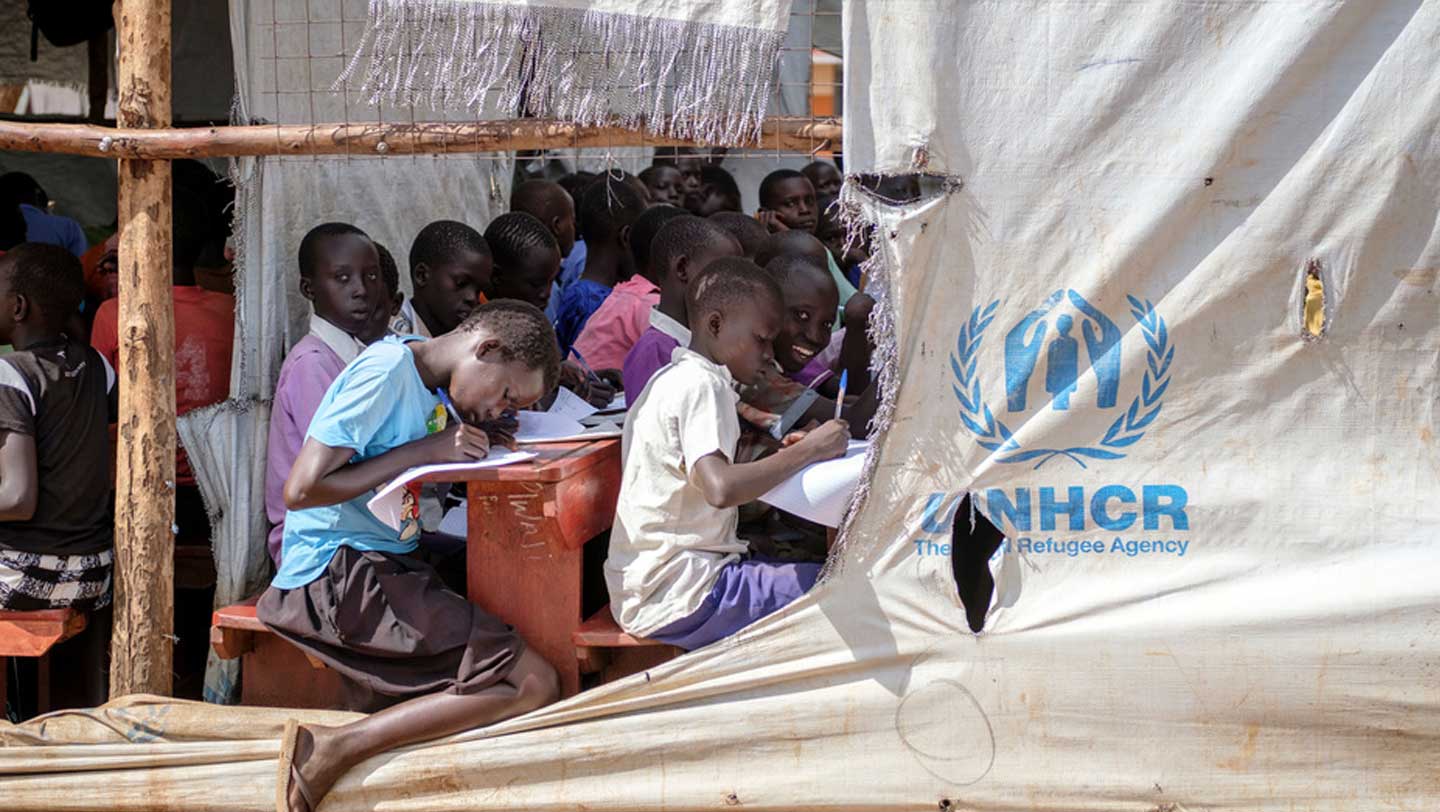
Education: UNHCR partners with governments and international organisations to ensure quality protective education for refugee children and young people everywhere. ©UNHCR
Education
According to our latest education report, 3.5 million refugee children did not attend school in 2016. Only 61 per cent of refugee children attend primary school, compared with a global average of 91 per cent. As refugee children age, the obstacles to education increase. For tertiary education the situation is critical. Only one per cent of refugee youth attends university, compared to 36 per cent globally. UNHCR partners with governments and international organisations to ensure quality protective education for refugee children and young people everywhere. Together with your help, they can learn how to rebuild their lives.

